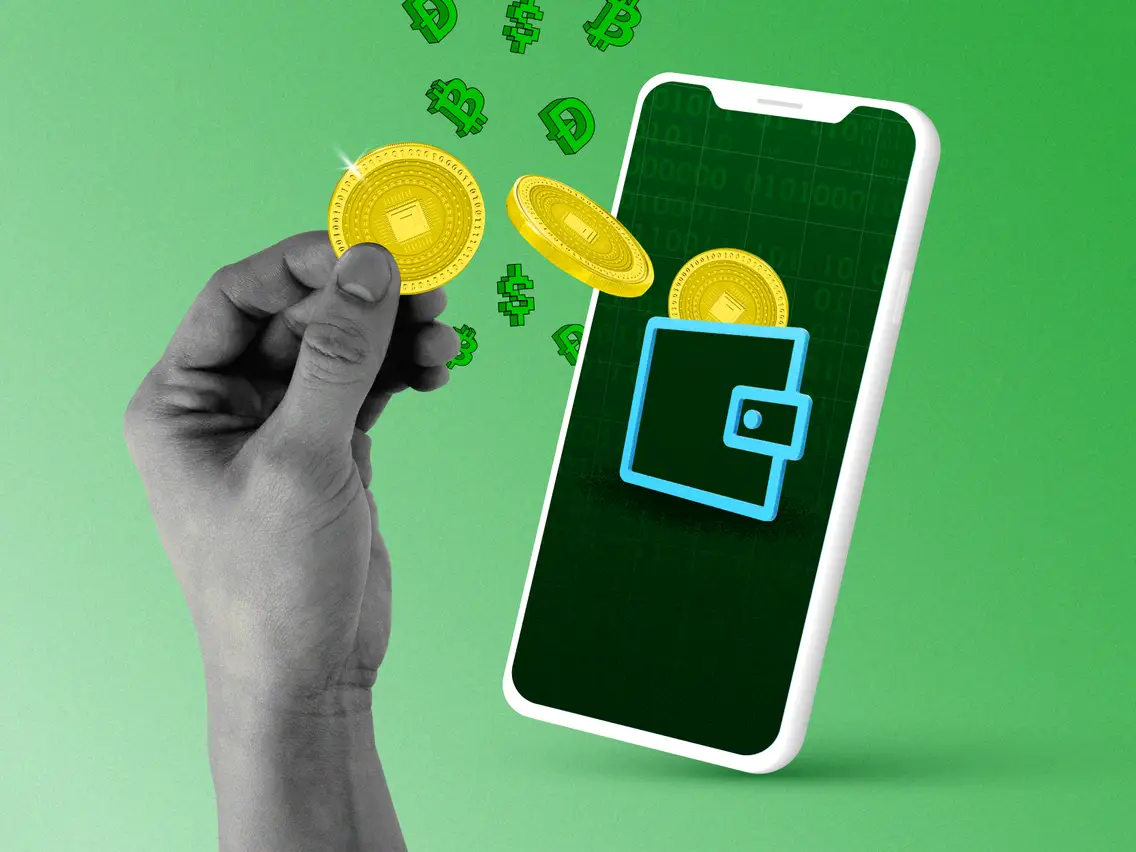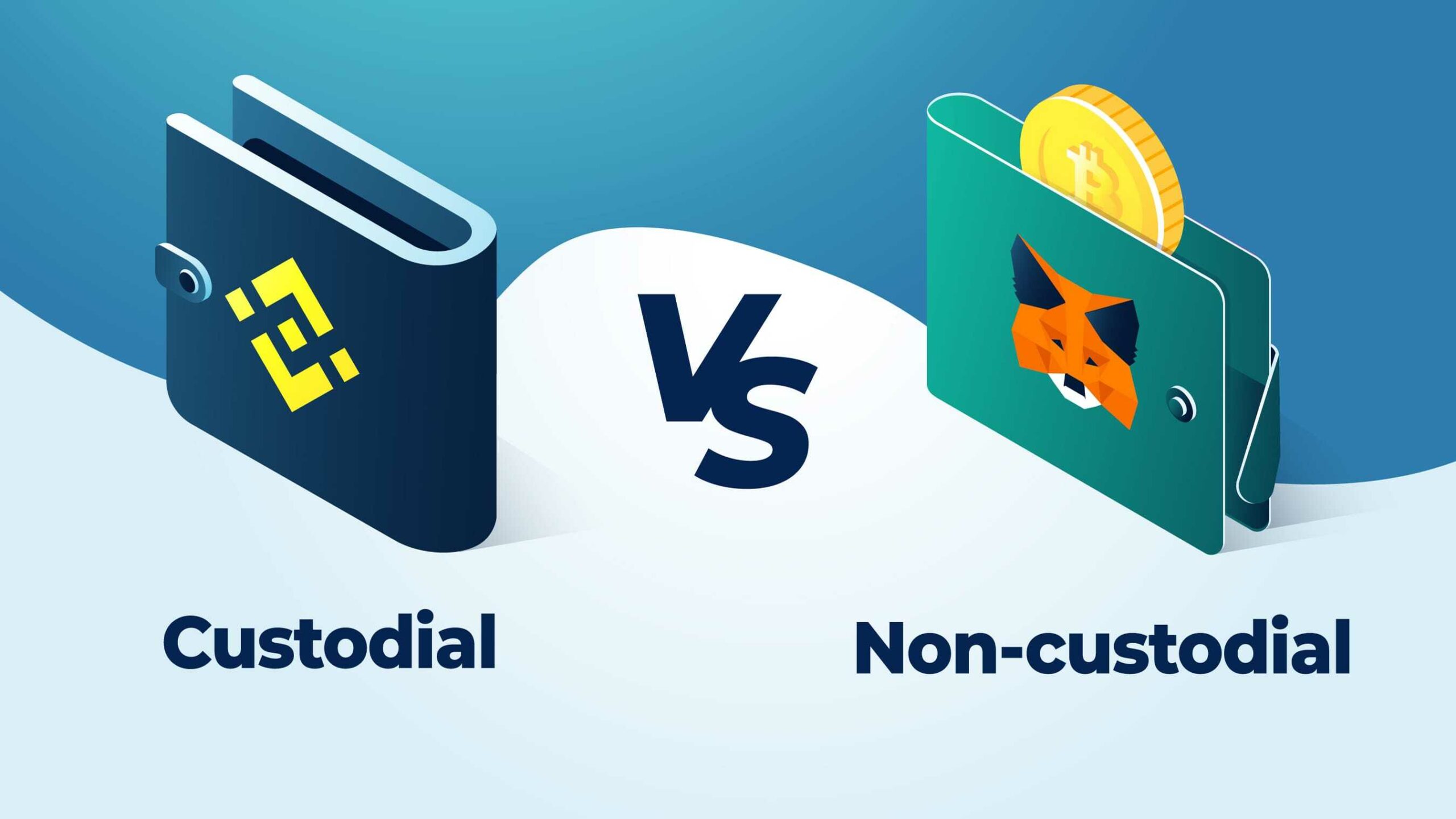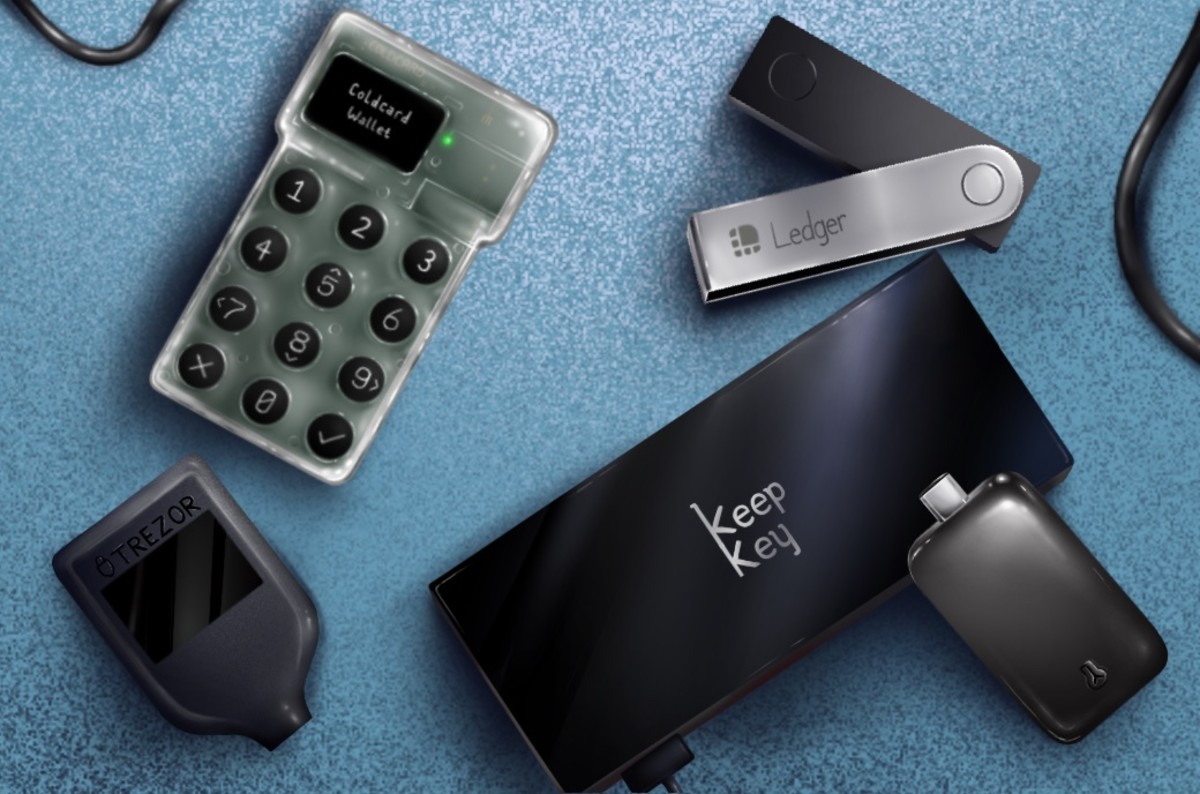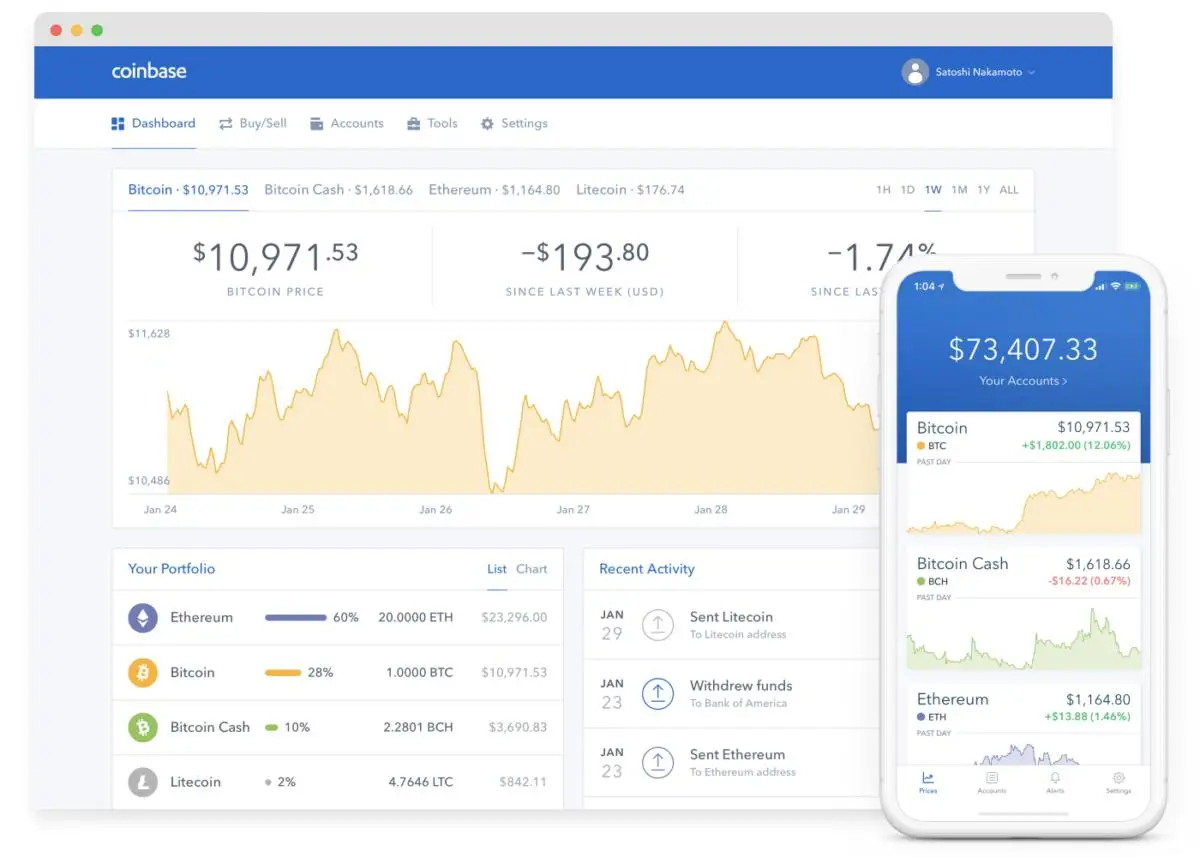If you are new to crypto and want to purchase cryptocurrency, you will need a crypto wallet first. You can use this wallet to buy or sell any digital currency, which includes Bitcoin (BTC), Ethereum (ETH), Binance Coin (BNB), and others.
In addition, you have probably come across people discussing trading or how they exchange a crypto token; all this process takes place in a crypto wallet.
A crypto wallet, just like a bank, serves the same function by allowing you to deposit and withdraw cryptos or funds. The difference is that you get to have control over your wallet account. You become your own bank, with no central authority to control how it functions.
Simply put, if you are venturing into the crypto industry, you should have a wallet, because why not?
This article will teach you everything you need about crypto wallets, why you need them, and the different types of wallets.
Table of Contents
What is a Crypto Wallet?
A crypto wallet is a software that allows you to store and exchange digital currency safely. Crypto wallets are made up of two types of keys: Public keys and private keys.

What is a Crypto Wallet?
A public key is an address composed of long string of characters that can be sent to anyone to receive a coin or digital currency. The public key is similar to your bank account number, which you use to receive money.
Let’s take an instance if someone wants to send you a specific coin, all you have to do is go to where the coin is located in your wallet, copy the address and send it to the person. When the recipient receives the address, they can send the crypto to you using your public address.
A private key is a string of words that allows you to access your crypto or wallet. This key is only yours, and no one else can access it. However, anyone with access to the key can access your balance, which is risky because the person can withdraw your crypto without your permission.
As a result, it is best to keep it to yourself at all times. A private key is similar to a bank account pin or password. It is always kept confidential.
Furthermore, your digital currencies balance and transactions are recorded on a blockchain, whereas the wallet is an interface through which you can interact, buy and sell different coins.
Read Also: Why Nigerians Should Invest in Cryptocurrency now
Why you need a Crypto Wallet
A crypto wallet is simply a secure place to store your cryptocurrency. Keeping it safe in your wallet is best if you have a large amount of cryptocurrency.
Then, you must keep your private keys safe so you can access your crypto assets whenever you want. This way, you retain sole ownership of your private keys and complete control over your digital assets.
A crypto wallet must also interact with various dApps (Decentralized Applications), swap tokens, stake tokens, and participate in other crypto-related activities.
Subscribe to our YouTube Channel to watch experts talk about cryptocurrency!
Custodial vs. Non-Custodial Wallets

Custodial vs. Non-Custodial Wallet
Wallets are classified either as custodial or non-custodial. The first decision to make when selecting a crypto wallet as a beginner is determining what kind of wallet you require based on the level of control and security you prefer.
-
Custodial Wallets
Custodial wallets, as the name implies, are wallets in which the private keys are held in the custody of a third party. This means a third party will secure your private key and manage your assets while you send and receive cryptocurrency. Because a central authority controls your wallet, you do not have complete control over your funds.
Nigerian newbies widely use custodial wallets, and this is because they are simple to use and efficient for everyone. Certain security requirements such as email confirmation, multi-factor authentication, biometrics, and facial recognition are incorporated by wallet service providers.
These security requirements protect users’ funds while preventing unauthorized access or hacking. Before choosing a custodial wallet, you must verify the wallet provider to ensure it is trustworthy and reliable.
Binance, BitMex, and Blockchain.com are popular examples of custodial wallets.
Read Also: Future of Cryptocurrency for Nigerians
-
Non-Custodial Wallets
A non-custodial crypto wallet is one in which the owners have complete control over the private keys. Users manage their funds and control their private keys without the need for intermediaries or any central authority. Custodial wallets interact with DApps (Decentralized Applications) or DEX (Decentralized Exchange), such as Uniswap, PancakeSwap, SushiSwap, and others.
When opening a non-custodial wallet, you will receive a list of recovery seed phrases. This seed phrase is used to recover your wallet in case you lose your mobile or lose access to the wallet. With the phrases provided, you can return to your wallet with your funds intact.
Because you retain complete control over your private keys and funds, you must safeguard these seed phrases because if they are lost, you will be unable to access your wallets.
Remember that it is your responsibility to keep your private keys secure, and it’s not a good idea to share your seed phrase because it’s only private to you. Anyone with your seed phrase can access your wallet and withdraw your funds without your permission.
Popular non-custodial wallets include MetaMask and Trust Wallet.
This knowledge is important in choosing the best crypto wallet for your assets.
Read Also: Fast Introduction to Blockchain and Cryptocurrency for Nigerians
Types of Crypto Wallets
When considering a custodial and non-custodial wallet, remember that you can store your cryptocurrency using a hardware or software wallet.
-
Hardware Wallets

Examples of a Hardware Crypto Wallet
A hardware wallet, also known as a cold wallet, is a portable device similar to a USB flash drive used to store cryptocurrency offline. All hardware wallets are non-custodial because you hold and control your private keys.
To use a hardware wallet, you connect the small device to your desktop or mobile device via USB or Bluetooth.
However, hardware wallets use an Internet connection to process transactions, but your private keys are not displayed online. Instead, private key signing takes place offline while the transaction occurs online.
-
Software Wallets

An example of a software crypto wallet – Coinbase
A software wallet, also known as a hot wallet, is a piece of software or mobile app that stores users’ private keys online. They are classified as either custodial or non-custodial. Software wallets can be web-based and mobile or desktop wallet applications.
-
Web-based Wallets
We have wallets like MetaMask that operate as a web browser and can swap tokens and send transactions. Therefore, users can easily interact with various Decentralized Applications in various networks using this wallet.
-
Desktop Wallets
The non-custodial Exodus wallet and Electrum wallet are available for use on a desktop or laptop computer.
-
Mobile Wallets
Mobile wallets are the same as desktop wallets. The difference is that these applications run on your smartphone rather than your desktop computer. Trust wallet and Exodus wallet are examples of mobile wallets.
When selecting wallets, remember that mobile wallets can be custodial or non-custodial.
Conclusion
While all wallets offer the same function, knowing which one is best for you is critical. When selecting a wallet, consider your specific goals, as well as why you need that particular wallet and whether or not it will be safe. In addition to this concern, you should verify any wallet before using it to avoid falling victim to malicious wallets inflicted by hackers.
You should meet people who trade with cryptocurrency and learn from them. Join our Whatsapp Community to meet them.
About Author
- Ahuzi Vincentia is a Cryptocurrency content creator and ardent writer. She is passionate about research and self-growth.
Latest entries
 TechnologyAugust 23, 2022What is a Crypto Wallet, and DO You Need One?
TechnologyAugust 23, 2022What is a Crypto Wallet, and DO You Need One? TechnologyJuly 26, 2022Top 10 Tech Blogs in Nigeria
TechnologyJuly 26, 2022Top 10 Tech Blogs in Nigeria TechnologyJuly 6, 202210 Ways to Avoid Crypto Scams
TechnologyJuly 6, 202210 Ways to Avoid Crypto Scams TechnologyJune 13, 2022Is Tech Industry the Future for Nigerian Youths
TechnologyJune 13, 2022Is Tech Industry the Future for Nigerian Youths

